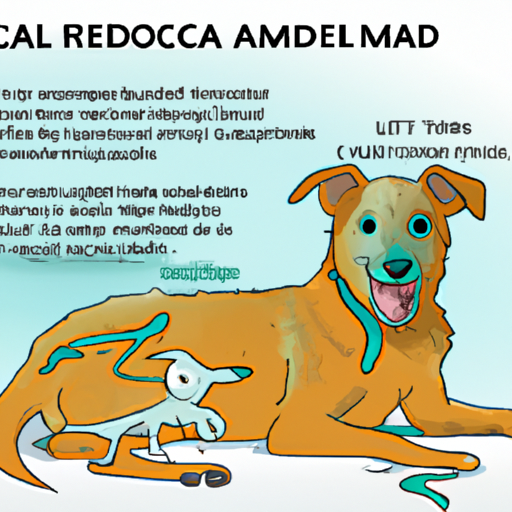What are Tapeworms?
Tapeworms, as unsettling as they are, are a common parasite that can infest your dog’s digestive system. They belong to a specific group of flatworms known as Cestoda. These long, flat (ribbon-like, if you will) worms attach themselves to your dog’s intestines, siphoning off nutrients to grow and reproduce.
How Do Dogs Get Infected?
Your dog doesn’t have to be roaming the wild to contract these pesky parasites. Here’s how they usually get infected:
- Fleas: Fleas are the most common source of tapeworms. If your dog ingests a flea infected with tapeworm larvae while grooming, they can become infected.
- Scavenging: Dogs that scavenge or eat raw meat (especially rodents) can ingest tapeworm eggs or larvae.
Symptoms of Tapeworm Infection
As a caregiver, it’s essential to know the signs of a tapeworm infestation in your dog. Here are some symptoms you may notice:
- Weight loss despite a good appetite
- Diarrhea or vomiting
- Visible segments of the tapeworm in your dog’s feces or attached to their rear
Preventing and Treating Tapeworms
Preventing tapeworms comes down to these key points:
- Regular flea treatment: Fleas are notorious for carrying tapeworms. Ensure your dog is on a regular flea treatment regimen.
- Avoid raw meat: If your dog has a habit of scavenging or you feed them a raw diet, reconsider this to avoid potential tapeworm infection.
Treatment, on the other hand, involves a visit to the vet who will likely prescribe a deworming medication.
| Prevention | Treatment |
|---|---|
| Regular flea treatment | Visit to the vet |
| Avoid raw meat | Deworming medication |
Frequently Asked Questions
Q: Can I get tapeworms from my dog?
A: While rare, it is possible if you accidentally ingest an infected flea.
Q: How long does it take for the deworming medication to work?
A: Most medications kill tapeworms within 24-48 hours.
Q: Are some dogs more susceptible to tapeworms than others?
A: Dogs that are frequently outdoors or who have a flea infestation are at greater risk.
Remember, as a caregiver, your awareness and action can make all the difference in your dog’s health. Stay vigilant and consult your vet if you suspect anything amiss.



